January 17, 2013
• MonoPhix HD 1.0 Black and White Photography Tool for iPad
• Omnisketch 1.1 Makes Drawing Pictures Easy On Your iPad.......
Tags: | | | |
Posted by: pybadyfyto at
06:52 AM
| No Comments
| Add Comment
Post contains 50 words, total size 1 kb.
January 16, 2013
The iPad is making appearances all over the White House
by on Jun.11, 2010, under

So if you’re wondering why it’s taking sooooooo long for any movement on health care reform or DADT it’s because the entire White House staff is obsessed with Scrabble on their iPad’s. Just kidding. Sort of.
According to the Washington Post everywhere you look in the White House these days you see an iPad. Specifically, almost  everyone in the West Wing office of White House Chief of Staff Rahm Emanuel has an iPad or an iPad on order. I guess White House security clearance doesn’t get you an iPad any faster than anyone else when there are shortages.
“Emanuel just got his, as did senior adviser and deputy press secretary Bill Burton. Both communications director and press wrangler Ben Finkenbinder have one on order. Economic adviser takes his to staff meetings.”
So of course, the Post wanted to know what apps everyone was using. I mean isn’t that the first thing you ask your friends when you’re talking about your iPads? “Summers has the Bloomberg app for financial information, says adviser Matt Vogel. Also Scrabble. And the first book he downloaded was a free copy of “The Federalist Papers.” Burton, who has been a bit of an iPad evangelist at the White House, has the app for Vanity Fair magazine, Scrabble, a news app and the entire last season of ABC’s “Lost.” Emanuel has “all the newspaper apps,” says a top aide, and has installed the iBooks app so he can read books on the device. Axelrod has only downloaded a couple of apps so far, his assistant, Eric Lesser, said. They include the Major League Baseball app and the National Public Radio one.
There’s no word on whether or not Mr. President himself has adopted an iPad, but we do know in the past his allegiance was to the Blackberry. Â But he’s got to be a bit jealous when he sees Joe Biden on his.

Posted by: pybadyfyto at
05:22 PM
| No Comments
| Add Comment
Post contains 339 words, total size 3 kb.

In an effort to turn the joy of iPad owners everywhere up to 11, Telltale Inc. has announced the release of their latest episodic endeavor for the iPad: Wallace & Gromit The Last Resort. 


If you're not already familiar with Wallace & Gromit, all you need to know is that their adventures are shorthand for awesome. For their first foray on to the iPad, dynamic inventor and pooch duo opt to build a resort in the basement of their house after their holiday plans are scrapped due to a whack of miserable weather.
Given that Telltale's other episodic content, such as the Sam & Max series, has always proven to be a reliable good time, there's little doubt that gamers of all ages will want to consider adding a little Wallace & Gromit to their library.
For a little more background on the game or the characters, you'll want to steer your browser on over to , or pay a visit to , the geniuses behind the Wallace & Gromit characters.





Posted by: pybadyfyto at
04:02 AM
| No Comments
| Add Comment
Post contains 180 words, total size 1 kb.
January 15, 2013
Wednesday, June 9, 2010
 Alcatel-Lucent announced on Wednesday that they are going to launch 100 gigabits per second optical networking technology. 100 Gbps wavelength means that the technology can transfer more than 100,000 MP3 files in 60 seconds or more than 15,000 HDTV channels streamed live. The company said they are using its Next-Generation Coherent technology. The optical gear is designed to handle the bandwidth that is required for Web video, file sharing and movie downloads and the company already sold 100 gbps equipment to a customer.
Alcatel-Lucent announced on Wednesday that they are going to launch 100 gigabits per second optical networking technology. 100 Gbps wavelength means that the technology can transfer more than 100,000 MP3 files in 60 seconds or more than 15,000 HDTV channels streamed live. The company said they are using its Next-Generation Coherent technology. The optical gear is designed to handle the bandwidth that is required for Web video, file sharing and movie downloads and the company already sold 100 gbps equipment to a customer.
The Next generation Coherent technology has gone through trials with more than 20 service providers. Alcatel-Lucent is trying to compete with Cisco to get first-mover advantage. On the other hand, Cisco last month bought CoreOptics, who develops 100 Gbps transmission technology. Cisco said that the new technology from CoreOptics will allow the service providers to offer with 100 Gbps gear. The 100 gbps optical gear is the brainchild of Lucent’s high end network architecture. Alcatel-Lucent also claims that the new technology is compatible also with slower carrier equipment operating at 10 and 40 Gbps.
Posted by: pybadyfyto at
02:42 PM
| No Comments
| Add Comment
Post contains 195 words, total size 2 kb.

The big interface helps productivity... except when it omits a feature.
Known as one of the premier organizational to-do apps on Mac and iPhone, Things sits in iPad limbo. Is it a stand-alone task-management tool with features that fully match the strong ? No. Is it just an extension of Things for Mac, designed to mostly sync data for mobile use? Not really. Things for iPad gives lip service to both audiences without fully serving either. It omits features--crucial to some--that you'd need in a stand-alone tool, and at $20, it's far too pricey to just be a way to bring the desktop data outside. At least the core to-do list functionality shines through; even in this waffling 1.0.1 version, Things for iPad can help boost your productivity.
Loosely related to the methodology, Things is flexible enough to fit most workflows. You'll create to-do entries, projects with multiple steps, and schedule items. Complete a step, and cross it off; it's good organization at its simplest. You can shuffle items between key areas, such as putting some in today's view to focus on just a few at a time. Scheduled items can even hide in an upcoming area and automatically appear on a specific date.

Different list views help corral to-do entries.
If you have the Mac version of the software, Things for iPad syncs the data over, keeping both editions current with your life. It worked well in our tests. With the desktop software open, every time we launched Things for iPad, the two found each other on the local network.
But you can only access several important features on Things for Mac and then sync them over. For example, recurring events--"take out the garbage each Wednesday"--require the Mac software. Ditto that for customized folder headings that essentially group aliases of to-dos.
Things for iPad misses other key interface features. You can't simply drag single (or multiple) items into new areas; you have to tap them and select a new destination. Worse, there's no search functionality, and bizarrely, you can't create lists that aren't Projects, a restriction that will seriously irk users of Things on other platforms. Cultured Code says it will address most (or all) of these in an update, but it's been almost two months since the app was released, and the company was unable to confirm a timeframe for an update that is absolutely essential for rounding out this half-baked, under-featured, and significantly overpriced app. We know this developer can do great things, and we're hoping the 1.1 update of this iPad app will realize its full potential.
Posted by: pybadyfyto at
01:12 AM
| No Comments
| Add Comment
Post contains 434 words, total size 3 kb.
January 14, 2013
Have you noticed the left blue color in Google Homepage — change background image. Lately the search engine ace has started paying heed to its minor rival, Bing that flaunts of an panoramic backdrop. What’s exciting, the age-old, white-washed Google homepage background can now be given a picturesque look by adding a background image to the search page. For all on the web, Google is indispensably the daily hang out, which necessitates the change for a better look and feel of the search homepage. It’s high-time to get-rid of the monotonous deluge of white Google background, especially when you some cool alternatives. We provide you the options for photos that you can insert in Google homepage background.
Here are options from where you can choose your Google background image
1. My Picasa Web Photos -Â Â your computer
2. My Computer - From the images in your computer
3. Public Gallery - Funny Images are free from copyright
4. Editor’s Picks -Â Collection form Google editors selection that will offer daily coolwallpapers
Take a look at some of the Google background image samples

With a cool Google background, you have another good reason to quit Bing
Posted by: pybadyfyto at
11:42 AM
| No Comments
| Add Comment
Post contains 204 words, total size 2 kb.
January 13, 2013

A leak in Apple's supply chain has revealed that the company may be preparing to ship as many as 3 million iPhone 4 devices per month. According to Robert Lai, Asia Optical's chairman, the company is supplying Apple will 3 million front-facing VGA cameras per month. He also states that Apple has booked enough cameras to supply about 9 million iPhone 4's per quarter.
According to a post by , Lai said that Asia Optical has been supply Apple with cameras since manufacturing began in May.
notes that if Apple were to sell 3 million iPhones per month, that would be similar to Google's announced 100,000 activations per day of Android devices.
Needless to say, there should be plenty of iPhones 4's to go around should the demand be high around the world.
Posted by: pybadyfyto at
10:22 PM
| No Comments
| Add Comment
Post contains 147 words, total size 1 kb.
Posted by: pybadyfyto at
09:02 AM
| No Comments
| Add Comment
Post contains 65 words, total size 1 kb.
January 12, 2013
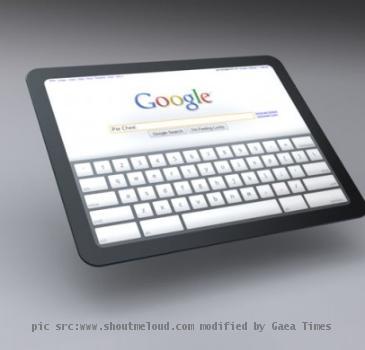
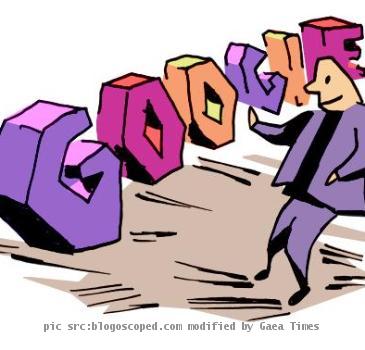
Hewlett-Packard spends $1.6M on 1Q lobbying
WASHINGTON — Hewlett-Packard Co. spent $1.6 million to lobby the U.S. government in the first quarter on a smorgasbord of issues including federal spending on technology, enforcement of immigration laws and health care reform.
The amount was nearly double HP’s $840,000 lobbying tab from the first quarter of 2009. HP spent $710,000 on lobbying in the fourth quarter of 2009.
Kristy Sternhell, formerly a counsel to Senate Majority Leader Harry Reid, was among the people who lobbied on behalf of HP, which is the world’s biggest technology company by revenue.
HP said in its latest lobbying-disclosure form, filed with the House clerk’s office, that it lobbied Congress and various government agencies. Those agencies included the Homeland Security and Labor departments, which HP lobbied on immigration-related issues, including legislation involving the creation of a computer network to verify that workers in the U.S. are legally able to work. Other agencies included the Health and Human Services department and the Federal Reserve System.
HP’s $1.6 million tab ranked among the highest for technology companies in the latest period.
Other big-time Silicon Valley tech firms spent less. Google Inc. spent $1.4 million in the first quarter to lobby the federal government on issues including its decision to stop censoring search results in China, and Oracle Corp. spent $1.1 million, in part on regulatory issues concerning its recent acquisition of Sun Microsystems.
However, Microsoft Corp., consistently one of tech’s biggest lobbying spenders, spent more than HP — $1.7 million on lobbying in the latest period.
Posted by: pybadyfyto at
07:42 PM
| No Comments
| Add Comment
Post contains 271 words, total size 2 kb.
Posted by: pybadyfyto at
06:22 AM
| No Comments
| Add Comment
Post contains 72 words, total size 1 kb.
January 11, 2013
HELSINKI — Swiss scientist Michael Graetzel won the 2010 Millennium Technology Prize on Wednesday for helping to develop cheap solar cells for renewable energy projects.
The German-born chemist, director of the photonics and interfaces laboratory at Ecole Polytechnique de Lausanne in the Swiss city of the same name — was awarded the euro800,000 ($960,000) prize by the Technology Academy of Finland for his innovation, which led to the development of electricity-generating windows and mobile solar panels.
The Finnish academy said finding ways to replace the Earth’s diminishing fossil fuel supply was one of mankind’s greatest challenges, adding that the sun is “the most obvious energy source.”
“The constraint of solar energy has traditionally been its price. Graetzel cells provide a more affordable way of harnessing solar energy,” said Ainomaija Haarla, president of the academy. “Graetzel’s innovation is likely to have an important role in low-cost, large-scale solutions for renewable energy.”
The academy described the price-performance ratio of Graetzel’s cells as “excellent, adding that they had just made their commercial debut.
“The technology often described as ‘artificial photosynthesis’ … is made of low-cost materials and does not need an elaborate apparatus to manufacture,” the academy said.
Graetzel, 66, won the main prize while runners up — Sir Richard Friend and Stephen Furber, both British — were each awarded euro150,000 ($180,000) for plastic electronics and microprocessors.
Friend, a professor of physics at the University of Cambridge, was cited for inventing organic Light Emitting Diodes, known as LEDs, “a crucial milestone in plastic electronics.”
“Electronic paper, cheap organic solar cells and illuminating wall paper are examples of the revolutionary future products his work has made possible,” the international award committee said.
Furber, a professor of computer engineering at the University of Manchester, is the principal designer of the 32-bit ARM microprocessor that the academy said “has revolutionized mobile electronics.”
“The ingeniously designed processor enabled the development of cheap, powerful, handheld, battery-operated devices. In the past 25 years, nearly 20 billion ARM-based chips have been manufactured,” it added.
Stig Gustavson, chairman of the academy’s board, said that all three inventions “benefit mankind as broadly as possible, both today and in the future.”
It was the fourth time that Finland has awarded the biennial Millennium Technology Prize, launched by the government and Finnish industry in 2004. The prizes are for achievements in energy and the environment, communications and information, new materials and processes as well as for health care and life sciences.
The previous winner, in 2008, was American Professor Robert Langer from MIT for developing bio-materials used in combatting cancer and heart disease.
Other winners include Japanese Professor Shuji Nakamura for inventions in laser technology and LED lighting, and Tim Berners-Lee, the MIT scientist credited with inventing the World Wide Web.
_______
Online:
www.millenniumprize.fi.
Posted by: pybadyfyto at
05:02 PM
| No Comments
| Add Comment
Post contains 472 words, total size 4 kb.
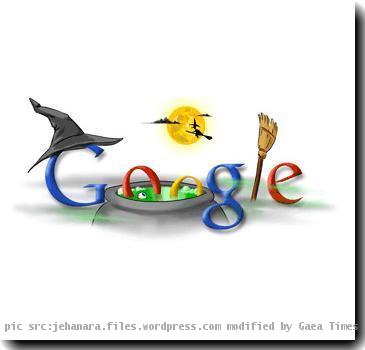

Google spruces up home page with background images
MOUNTAIN VIEW, Calif. — If Google’s famously sparse home page is too plain for you, the company is giving you some more options.
A bold color photo of sand dunes replaced the white background to Google’s search box Thursday. You can replace the desert scene with an image of your own or others available from Google. Or you can stick with the classic format.
In a blog post last week, Google Inc. said the move is aimed at making the “search experience more relevant, useful and fun through personalization.”
It also follows an artistic choice made by Microsoft Corp.’s search engine, Bing, which also uses images as a background to its search box.
Online:
Google blog post explaining the change:
googleblog.blogspot.com/2010/06/freeze-frame.html
Posted by: pybadyfyto at
03:42 AM
| No Comments
| Add Comment
Post contains 141 words, total size 1 kb.
January 10, 2013
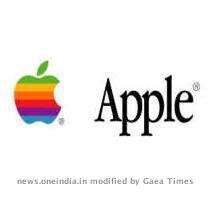

NYC mayor shrugs off iPad e-mail address leak
NEW YORK — Mayor Michael Bloomberg’s e-mail address was exposed because of a security vulnerability with his new iPad, but the billionaire media mogul shrugged it off Thursday and said he didn’t understand the fuss.
“It shouldn’t be pretty hard to figure out my e-mail address,” Bloomberg said, “and if you send me an e-mail and I don’t want to read it, I don’t open it. To me it wasn’t that big of a deal.”
AT&T Inc. said Wednesday that a security weak spot exposed the e-mail addresses — but nothing else — of more than 100,000 iPad users. Only users who signed up for AT&T’s “3G” wireless Internet service were affected.
The problem had to do with the way AT&T’s website prompted iPad users to log onto their AT&T accounts.
A hacker group that calls itself Goatse Security claims to have found the weakness and said it was able to trick AT&T’s site into giving up more than 114,000 e-mail addresses, including those of famous people and government officials.
Bloomberg, who founded the financial information company Bloomberg LP and has an estimated $18 billion fortune, said such glitches are part of modern life.
“We live in a world where information is available all over the place, and there’s going to be security breaches every day all over the world,” he said. “That’s what happens when you have information.”
In recent weeks, the mayor has often touted the Apple Inc. tablet as a helpful tool for managing a city of 8.4 million people.
AT&T said Wednesday it would notify all iPad users whose e-mail addresses may have been exposed.
“We take customer privacy very seriously and while we have fixed this problem, we apologize to our customers who were impacted,” the company said in a statement.
Posted by: pybadyfyto at
02:22 PM
| No Comments
| Add Comment
Post contains 319 words, total size 3 kb.
• iOS 4 Jailbroken Within a Day of First Release
• Barnes & Noble Offers Free Coffee To Promote In-store E-reading
• New York Times Forces Apple to Pull Popular 'Pulse' iPad Newsreader
• Pulse Has A Pulse Once Again - Already Back In The App Store
• Did Apple Tell Times to Shove Its App-Takedown Letter?
• iPhone vs. Android
• Is the A4 CPU Really Exclusively Designed by Apple?
• IBM's Lotus Notes Brings Secure Email To The iPad
• The Tech Night Owl: The iPhone 4 Report: Chipping Away Problems.......
Tags: | |
Posted by: pybadyfyto at
01:02 AM
| No Comments
| Add Comment
Post contains 117 words, total size 1 kb.
January 09, 2013
Thursday, June 10, 2010
LONDON - An office worker in Britain has become an Internet sensation after she flashed her bra at a Street View camera car.
The busty woman, who lifted her top as the car drove past her workplace, escaped being disciplined by her bosses at the Doma Farm Nursery in Uckfield, East Sussex.
“It made me laugh,” the Sun quoted web user LAP, who spotted her, as stating.
Another called Bernard Stotesbury added: “One presumes that she did not have enough time to remove the bra?”
Street View is said to cover 96 percent of Britain’s roads. (ANI)
Posted by: pybadyfyto at
11:42 AM
| No Comments
| Add Comment
Post contains 113 words, total size 1 kb.
January 08, 2013


Samsung invests $3.6 billion in Texas chip plant
AUSTIN, Texas — Samsung Electronics Co. said Wednesday that due to projected heavy demand for its advanced logic chips the South Korean company will invest $3.6 billion to expand capacity at its plant in Austin, Texas, and hire 500 more workers there by 2011.
Samsung will raise its employee count at the facility to 1,500 from 1,000 by next year, boosting annual payroll to about $105 million. The expansion, which builds out the second phase of its 2.3 million-square-foot complex, will bring its total investment in the Austin plant to more than $9 billion.
Most of the new employees with be engineers and technicians. In addition, the company said almost 3,000 construction workers and equipment vendors will move in and set up the machinery. The plant will build advanced logic devices for Samsung’s system large-scale integration business and continue to make NAND flash memory chips, which are used in consumer electronics such as digital cameras, thumb drives and MP3 players.
“Forty-five nanometer and below advanced logic applications are in high demand and respective markets are expected to show substantial growth in the coming years,” said Stephen Woo, executive vice president and general manager of Samsung’s System LSI division.
Samsung expects the facility will be operational by the second quarter of next year.
Posted by: pybadyfyto at
10:22 PM
| No Comments
| Add Comment
Post contains 235 words, total size 2 kb.
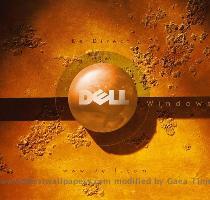

Dell lowers 1Q profit to build $100M legal reserve
ROUND ROCK, Texas — Dell Inc. said Thursday that it lowered its first-quarter results by $100 million, or 5 cents per share, to set aside a $100 million reserve it may need to pay out as part of a settlement related to an ongoing SEC accounting probe into the computer maker’s accounting and financial reporting practices.
The company also said its CEO, Michael Dell, is talking with the Securities and Exchange Commission about a possible settlement.
Dell first disclosed an internal investigation into its accounting in 2006, saying it was notified in August of that year of an SEC inquiry related to its revenue recognition and financial reporting.
In 2007, it said it would restate more than four years of financial results with lower earnings after the probe found that its employees had misled auditors and manipulated results to meet performance targets.
Dell said Thursday that a settlement would include negligence-based fraud charges and non-fraud based charges connected to disclosures and alleged omissions that occurred before fiscal 2008 as part of its relationship with chip maker Intel Corp.
Dell said in a statement that its CEO and the SEC have begun talking about a “settlement framework” to resolve the allegations against it.
In the statement, Dell said that a settlement would not prevent Dell from working as an officer or director of a public company, and “would be made without admitting or denying the SEC’s allegations.”
In May, the company had reported a profit of $441 million, or 22 cents per share, for the Feburary-through-April quarter. The company says its profit for that period is now $341 million, or 17 cents per share. Its adjusted earnings remain the same at 30 cents per share.
Dell’s shares dropped 30 cents, or 2.3 percent, to $12.77 in after-hours trading following its news release. It ended the regular session up 29 cents at $13.07.
Posted by: pybadyfyto at
09:02 AM
| No Comments
| Add Comment
Post contains 337 words, total size 3 kb.
January 07, 2013
UNITED NATIONS — The U.S. and its allies scored a long-sought victory Wednesday by pushing through new U.N. sanctions over Iran’s nuclear program, punishments Tehran dismissed as “annoying flies, like a used tissue.”
The sanctions target Iran’s powerful Revolutionary Guard, ballistic missiles and nuclear-related investments. Oil exports, the lifeblood of Iran’s economy, are not affected because targeting them would have cost the U.S. essential support from Russia and China.
President Barack Obama said the sanctions are the toughest Iran has ever faced. They required several months of difficult negotiations by the five veto-wielding permanent U.N. Security Council members — the U.S., Russia, China, Britain and France — and non-member Germany. This is the fourth round of sanctions aimed at getting Iran into serious discussions on its nuclear ambitions.
“Actions do have consequences, and today the Iranian government will face some of those consequences,” Obama said. He left the door open to diplomacy but said Iran “will find itself more isolated, less prosperous and less secure” unless it meets its obligations under the Nuclear Nonproliferation Treaty.
Iranian President Mahmoud Ahmadinejad, on an official visit in Tajikistan, dismissed the new resolution.
“From right and from left, they adopt sanctions, but for us they are annoying flies, like a used tissue,” he said.
Tehran insists its program is peaceful and aimed at producing nuclear energy. The U.S. and its allies say Iran is trying to produce nuclear weapons; they want Iran to suspend uranium enrichment and start negotiations aimed at ensuring that it uses nuclear technology only for peaceful purposes.
The new resolution bans Iran from pursuing “any activity related to ballistic missiles capable of delivering nuclear weapons,” bars Iranian investment in activities such as uranium mining and prohibits Iran from buying several categories of heavy weapons including attack helicopters and missiles. Iran, however, already has most of what it would need to make a weapon.
Iran’s top nuclear negotiator, Saeed Jalili, warned that “choosing the option of confrontation will bring Iran’s resolute response,” according to Iran’s official news agency. He did not elaborate.
Iran’s U.N. Ambassador Mohammad Khazaee accused the United States, Britain and their allies of abusing the Security Council to attack Iran.
“No amount of pressure and mischief will be able to break our nation’s determination to pursue and defend its legal and inalienable rights,” Khazaee said. “Iran is one of the most powerful and stable countries in the region and never bowed — and will never bow — to the hostile actions and pressures by these few powers and will continue to defend its rights.”
U.S. Ambassador Susan Rice dismissed Khazaee’s statement as “ridiculous … reprehensible, offensive, and inaccurate” and declared that “these sanctions are as tough as they are smart and precise.”
The resolution was approved by a vote of 12-2 with Lebanon abstaining and Brazil and Turkey voting “no.” Turkey and Brazil, both non-permanent council members, brokered a fuel-swap agreement with Iran that they offered as an alternative solution to concerns Tehran may be enriching uranium for nuclear weapons.
Lebanon’s U.N. Ambassador Nawaf Salam said he abstained because the government failed to “reach a final position.” A U.N. diplomat, speaking on condition of anonymity because the government debate was private, said the Cabinet was split, 14-14, on whether to vote no or abstain.
The sanctions put Iran in the unusual position of bashing key allies China and Russia. Both countries voted for the resolution and either could have vetoed it. Ahmadinejad warned Russian leaders last month “to correct themselves, and not let the Iranian nation consider them among its enemies.”
In Moscow, the Itar-Tass news agency reported that Ahmadinejad will not take part in the summit of the Shanghai Cooperation Organization in Uzbekistan beginning Thursday. The group was created in 2001 to address religious extremism and border security in Central Asia, and has grown into a bloc aimed at defying U.S. interests in the region.
Ahmadinejad is scheduled to tour the World Expo in Shanghai this week, but is not expected to hold talks with senior Chinese leaders.
Iran holds more leverage over China, which needs Iran’s oil and gas to feed its growing energy appetite, than it does over Russia, which has long provided important technology to Iran including building the country’s first nuclear reactor. The facility is expected to begin electricity production this summer.
The Security Council imposed limited sanctions in December 2006 and has been ratcheting them up in hopes of pressuring Iran to suspend enrichment and start negotiations on its nuclear program. Iran has repeatedly defied the demand and has stepped up its activities, enriching uranium to 20 percent and announcing plans to build new nuclear facilities.
The new resolution imposes sanctions on 40 Iranian companies and organizations — 15 linked to Iran’s Revolutionary Guard, 22 involved in nuclear or ballistic missile activities and three linked to the Islamic Republic of Iran Shipping Lines. That more than doubles the 35 entities that had been subject to an asset freeze.
The sanctions add one individual to the previous list of 40 Iranians subject to an asset freeze — Javad Rahiqi, who heads the Atomic Energy Organization of Iran’s Esfahan Nuclear Technology Center. All 41 individuals will also now be subject to a travel ban.
Rahiqi declined to comment when contacted by The Associated Press.
The resolution also calls on all countries to cooperate in cargo inspections — which must receive the consent of the ship’s flag state — if there are “reasonable grounds” to believe the cargo could contribute to the Iranian nuclear program.
On the financial side, it calls on — but does not require — countries to block financial transactions, including insurance and reinsurance, and to ban the licensing of Iranian banks if they have information that provides “reasonable grounds” to believe these activities could contribute to Iranian nuclear activities.
U.S. Defense Secretary Robert Gates said Tuesday that new sanctions would pave the way for tougher additional measures by the U.S. and its allies. France’s U.N. Ambassador Gerard Araud said after Wednesday’s vote that European Union foreign ministers will be meeting on Monday and France would like “a tough translation of the resolution,” but it’s up to the 27 countries to decide on additional sanctions.
Israel’s ambassador to the United States, Michael Oren, said the resolution “can serve as a viable platform” for nations to launch sanctions such as restrictions on Iran’s ability to import gasoline. “They have a lot of oil, but not a lot of refined oil or the ability to export oil abroad,” he said.
The U.N. resolution was approved despite an Iranian diplomatic offensive launched in April. Jalili visited Beijing that month in the wake of U.S. reports saying China had dropped its opposition to possible new U.N. measures against Iran.
Iran also approached several non-permanent Security Council members, including Bosnia, Brazil, Turkey and Uganda, in hopes of averting new sanctions. Inviting diplomats from all 15 members of the Security Council to a two-hour dinner in New York in May was seen as Iran’s high-profile attempt to head off additional penalties.
China’s U.N. Ambassador Li Baodong said after the vote that the sanctions were aimed at curbing nonproliferation and would not affect “the normal life of the Iranian people” nor deter normal trade activity, a view echoed by Russia’s U.N. envoy Vitaly Churkin.
The five permanent council members and Germany, in a statement after the vote, reaffirmed their “determination and commitment to seek an early negotiated solution to the Iranian nuclear issue … which would restore international confidence in the peaceful nature of Iran’s nuclear program.” It welcomed and commended “all diplomatic efforts in this regard, especially those recently made by Brazil and Turkey.”
Brazilian President Luiz Inacio Lula da Silva said the new sanctions were “a mistake” implemented “just for spite.” According to the state-run Agencia Brasil news agency, Silva said the resolution’s supporters “threw out an historic opportunity to peacefully negotiate the Iranian nuclear program” — the fuel-swap agreement his country and Turkey had championed.
Under the proposal, Iran would swap some of its enriched uranium for fuel for a research reactor in Tehran. The U.S., Russia and France have said that — unlike the original plan drawn up eight months ago — the proposal would leave Iran with enough material to make a nuclear weapon.
The three countries sent a letter to the International Atomic Energy Agency seeking clarifications from Tehran, and several council ambassadors said they would still like to see the swap go ahead. Lebanon’s Salam called it “a gateway for confidence building measures.”
“We believe that the sanctions resolution is a painful failure of diplomatic efforts,” Salam said. “We refuse to give up. We call on all states … to reinitiate and intensify diplomatic efforts.”
The new sanctions should bring little direct political fallout for Ahmadinejad. The country has been deeply polarized since last June’s disputed presidential election — which the opposition claims was rigged by vote fraud — and Ahmadinejad’s backers are likely to use the sanctions as a rallying cry.
In Venezuela, President Hugo Chavez condemned the measures against Iran, his close ally.
“Why won’t they sanction Israel? You realize the cynicism of the Yankee empire and its allies in the world,” Chavez said in a televised speech Wednesday night. “Israel massacres, kills, doesn’t comply with United Nations resolutions … and the United Nations acts as if nothing had happened.”
Associated Press Writers George Jahn in Vienna, Matthew Lee in Quito, Ecuador, Peter James Spielmann at the United Nations, Beth Fouhy in New York City, Mark Lavie in Jerusalem and Olga Tutubalina in Dushanbe, Tajikistan contributed to this report.
Posted by: pybadyfyto at
07:42 PM
| No Comments
| Add Comment
Post contains 1613 words, total size 11 kb.
Posted by: pybadyfyto at
06:22 AM
| No Comments
| Add Comment
Post contains 67 words, total size 1 kb.
January 06, 2013
A resolution approved Wednesday by the U.N. Security Council by a vote of 12-2 with one abstention imposes a fourth round of sanctions against Iran over its suspect nuclear program. Here are the key points in the 18-page text:
NUCLEAR ISSUES:
— Reiterates demand that Iran suspend enrichment and comply with all requirements of the International Atomic Energy Agency including its additional protocol which allows unannounced inspections of nuclear facilities.
— Calls on Iran to ratify the Comprehensive Nuclear Test Ban Treaty “at an early date.”
— Bans Iran from any foreign investment in uranium mining, enrichment or reprocessing, production or use of nuclear materials and technology, heavy-water activities, and technology related to ballistic missiles capable of delivering nuclear weapons.
MISSILES AND ARMS PROLIFERATION:
— Bans countries from selling eight categories of heavy weapons to Iran: battle tanks, armored combat vehicles, large caliber artillery systems, combat aircraft, attack helicopters, warships, missiles and missile systems.
— Bans all countries from supplying technical training, financing or other services for these weapons.
— Bans Iran from any activity related to ballistic missiles capable of delivering nuclear weapons, including launching such a missile.
— Bans all countries from supplying technology or technical assistance to Iran for such activities.
INDIVIDUAL AND COMPANY SANCTIONS:
— Adds one individual and 40 companies and other organizations to a list of those subject to an asset freeze including 22 entities involved in nuclear or ballistic missile activities, 15 controlled or acting on behalf of Iran’s powerful Revolutionary Guard Corps, and three linked to the Islamic Republic of Iran Shipping Lines.
— Orders all countries to ban the 41 individuals now on the list from traveling to or through their territory.
ILLEGAL SHIPMENTS:
— Calls on countries to cooperate in inspections — which must receive the consent of the ship’s flag state — if the vessel is suspected of carrying prohibited cargo.
— Bans the supply of fuel or services to Iranian owned or contracted vessels suspected of carrying prohibited cargo.
FINANCIAL AND BANKING MEASURES:
— Calls on countries to block financial transactions, including insurance and reinsurance, if there are “reasonable grounds” to believe these activities could contribute to Iranian nuclear activities.
— Orders all countries to require their nationals and companies operating in their territory “to exercise vigilance when doing business with entities incorporated in Iran or subject to Iran’s jurisdiction.”
— Calls on countries to ban the licensing of Iranian banks, the opening of financial institutions, or the establishment of new joint ventures if they have information that provides “reasonable grounds” to believe these activities could contribute to Iranian nuclear activities.
SANCTIONS ENFORCEMENT:
— Requests Secretary-General Ban Ki-moon to establish a committee of experts to monitor implementation of all sanctions against Iran and calls for a first report 90 days after its appointment.
ENGAGEMENT:
— Stresses the willingness of China, France, Germany, Russia, Britain and the United States “to further enhance diplomatic efforts to promote dialogue and consultations … without preconditions” with Iran.
— Emphasizes the importance of political and diplomatic efforts to find a negotiated solution guaranteeing that Iran’s nuclear program is exclusively for peaceful purposes.
— Notes in this regard the efforts of Turkey and Brazil toward agreement with Iran on a fuel-swap for the Tehran Research Reactor “that could serve as a confidence-building measure.”
— Emphasizes in the context of these efforts “the importance of Iran addressing the core issues related to its nuclear program.”
Posted by: pybadyfyto at
05:02 PM
| No Comments
| Add Comment
Post contains 580 words, total size 4 kb.
32 queries taking 0.0844 seconds, 108 records returned.
Powered by Minx 1.1.6c-pink.









